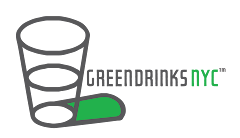Thankfully the Monterrey Bay Aquarium has come up with an easy to follow seafood guide that will help you make the right seafood choices for your health as well as the health of our oceans.
 Best Choices
Best ChoicesTilapia, Catfish that is farmed and from the U.S., Halibut, Mahimahi, Wild Salmon and farmed shrimp
Tip: Trader Joe's is a great source for reasonably priced Tilapia and Wild Salmon.
Wild salmon is also available to New York City residents at www.organicdirect.com
Tip: Try some healthy halibut recipes.
 Worst Choices:
Worst Choices:Swordfish, Shark, Chilean Seabass, Tuna, fresh and canned due to its high mercury content and Farmed Salmon.
Farmed Salmon contains 10X the amount of contaminants, including PCBs and other cancer causing chemicals and the fish are treated with antibiotics. To read the Sierra Club's article, on five reasons not to eat farmed salmon, visit http://www.sierraclub.org/e-files/wild_salmon.asp
For more information on making healthy seafood choices, visit Monterrey Bay Aquariums website:
http://mbayaq.org/default.asp and click on Seafood Watch Guide.
Dolphin Safe?
Fear of a public boycott of tuna, when it became known that tuna fisheries were inadvertently killing thousands of dolphins as bycatch, caused the largest tuna fisheries to switch to dolphin safe nets. These nets, while they are dolphin "safer," are more dangerous for sea turtles and sharks which get caught in the nets. Worldwide, fisheries throw away 25% of what they catch. To learn what is being done to stop bycatch click here
Why are some fish safe for the environment while others are not?
It all has to do with how the fish are caught. Line caught fish and trapped fish have a much smaller impact on the local environment than fish caught by trawling and dragging. Read more
For Teachers:
http://mbayaq.org/cr/cr_seafoodwatch/sfw_hd.asp for information on fish farming and aquaculture
